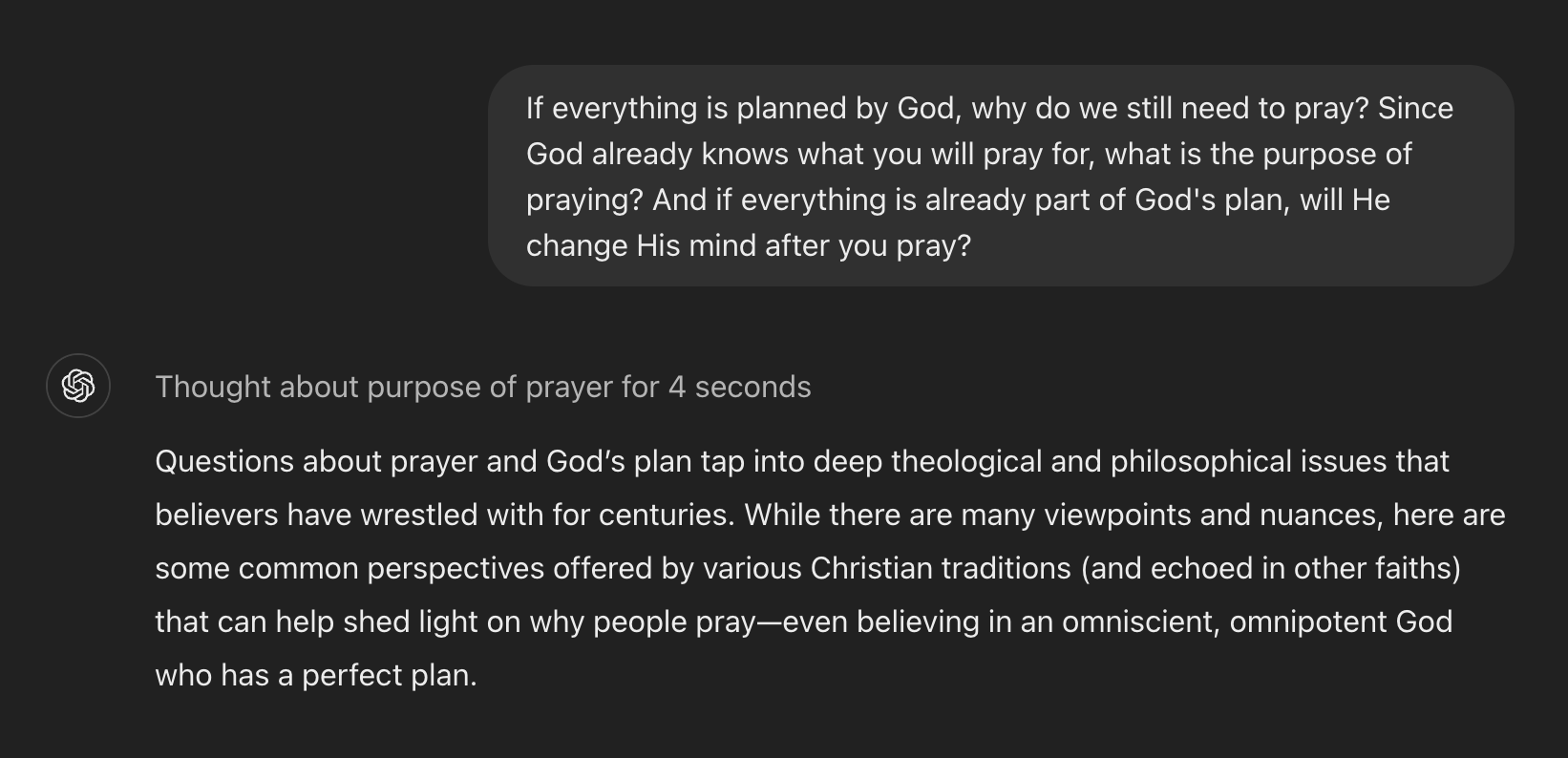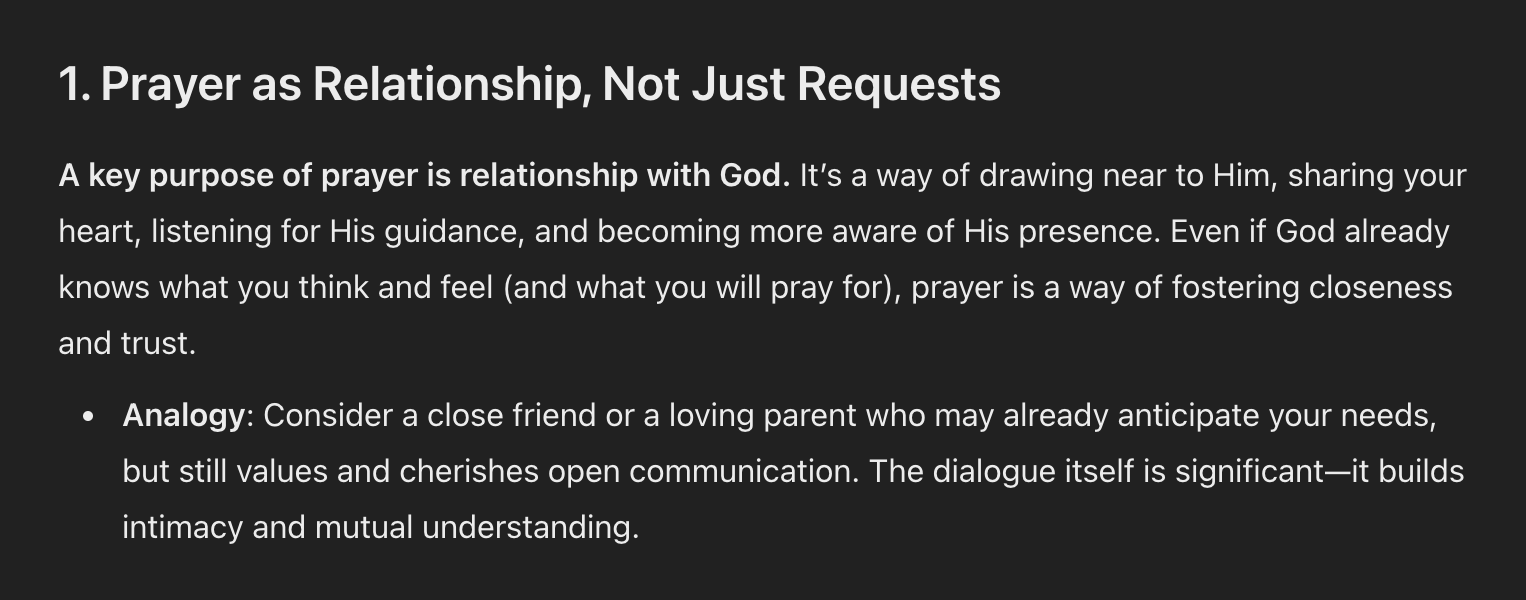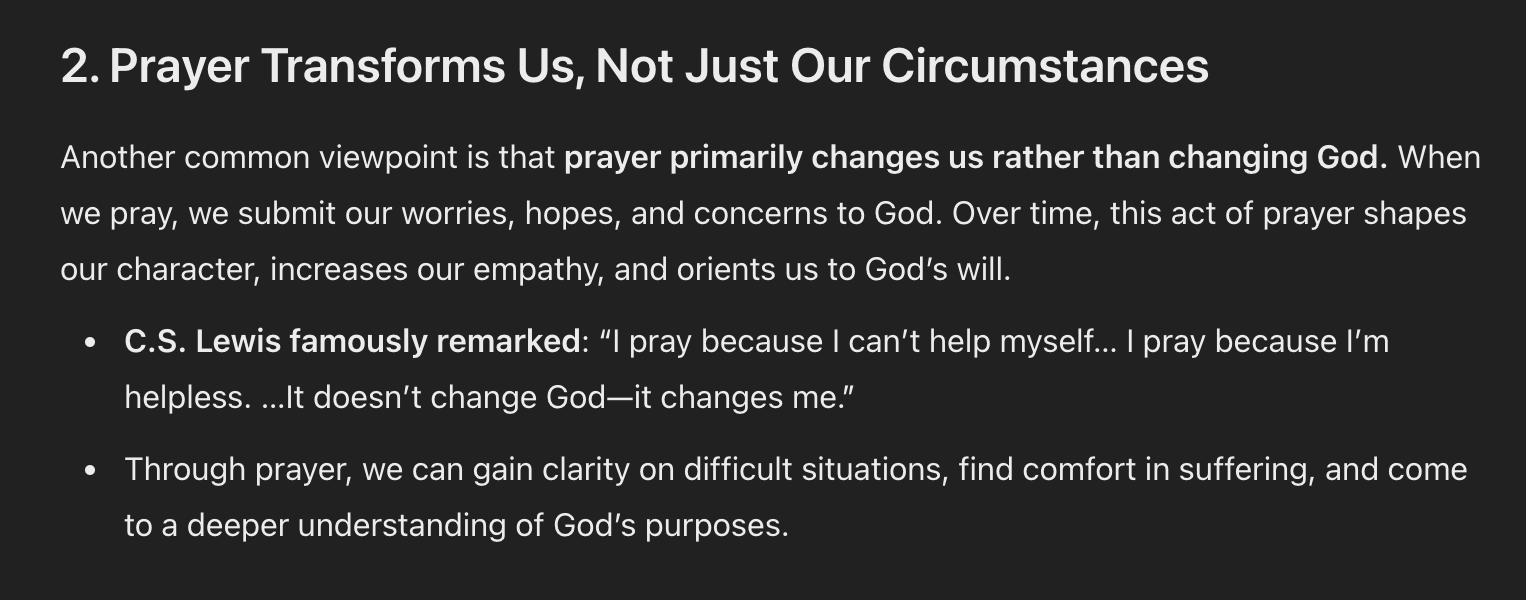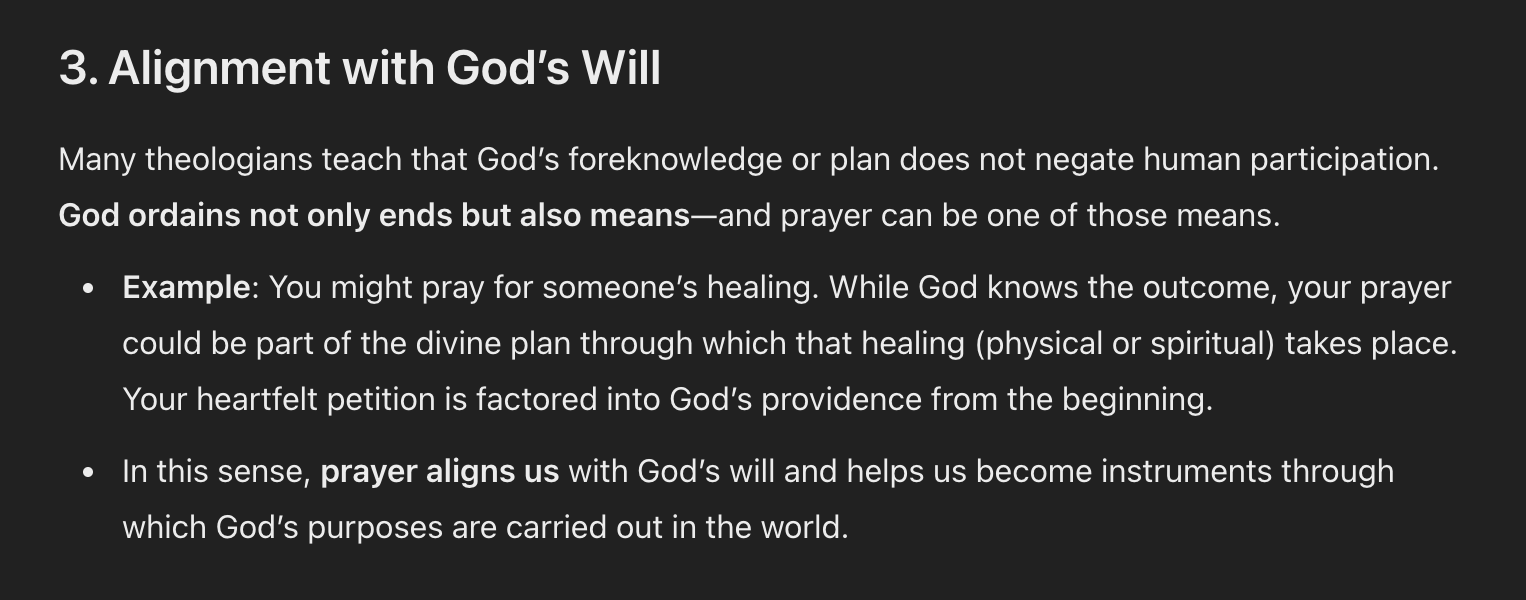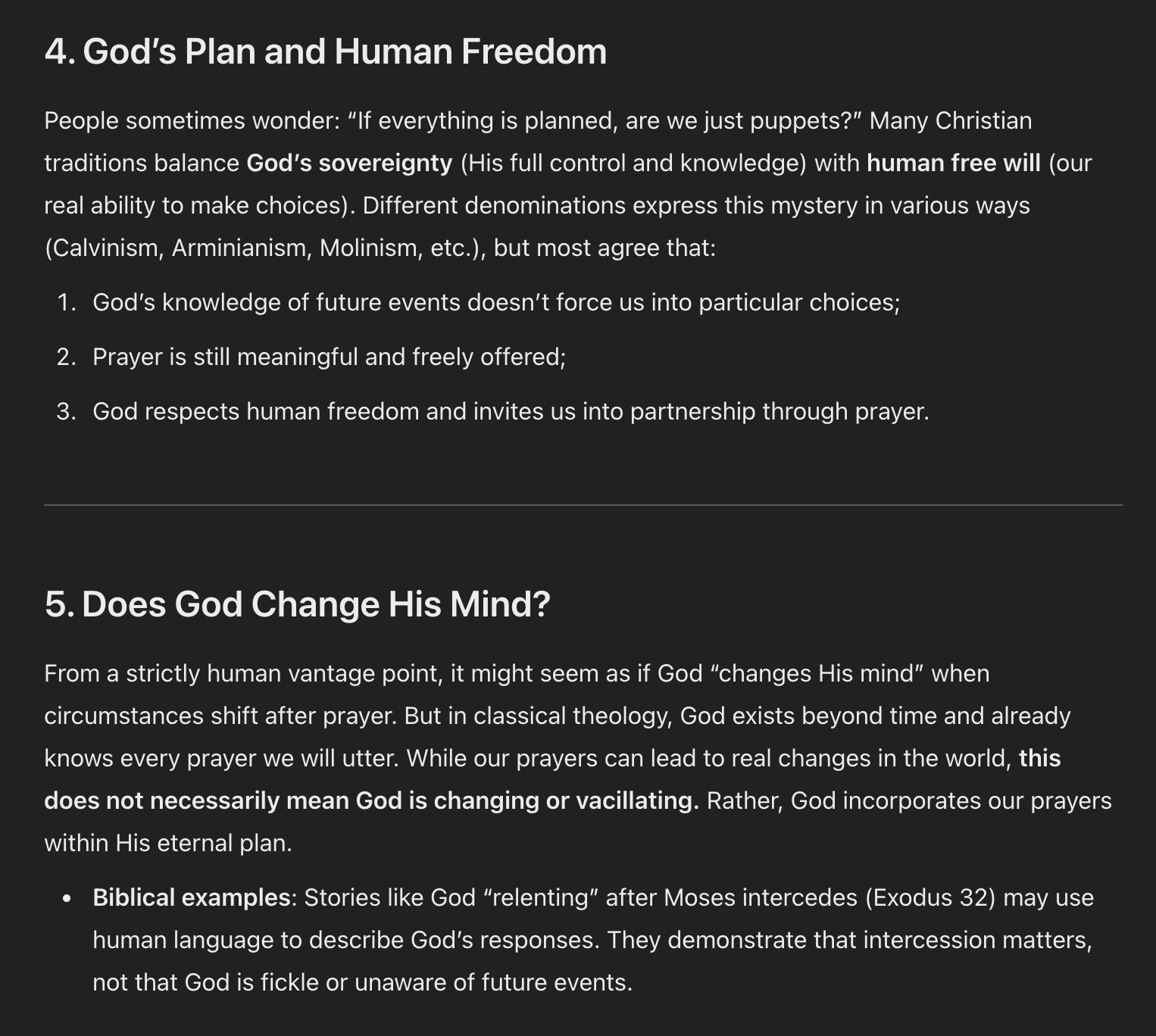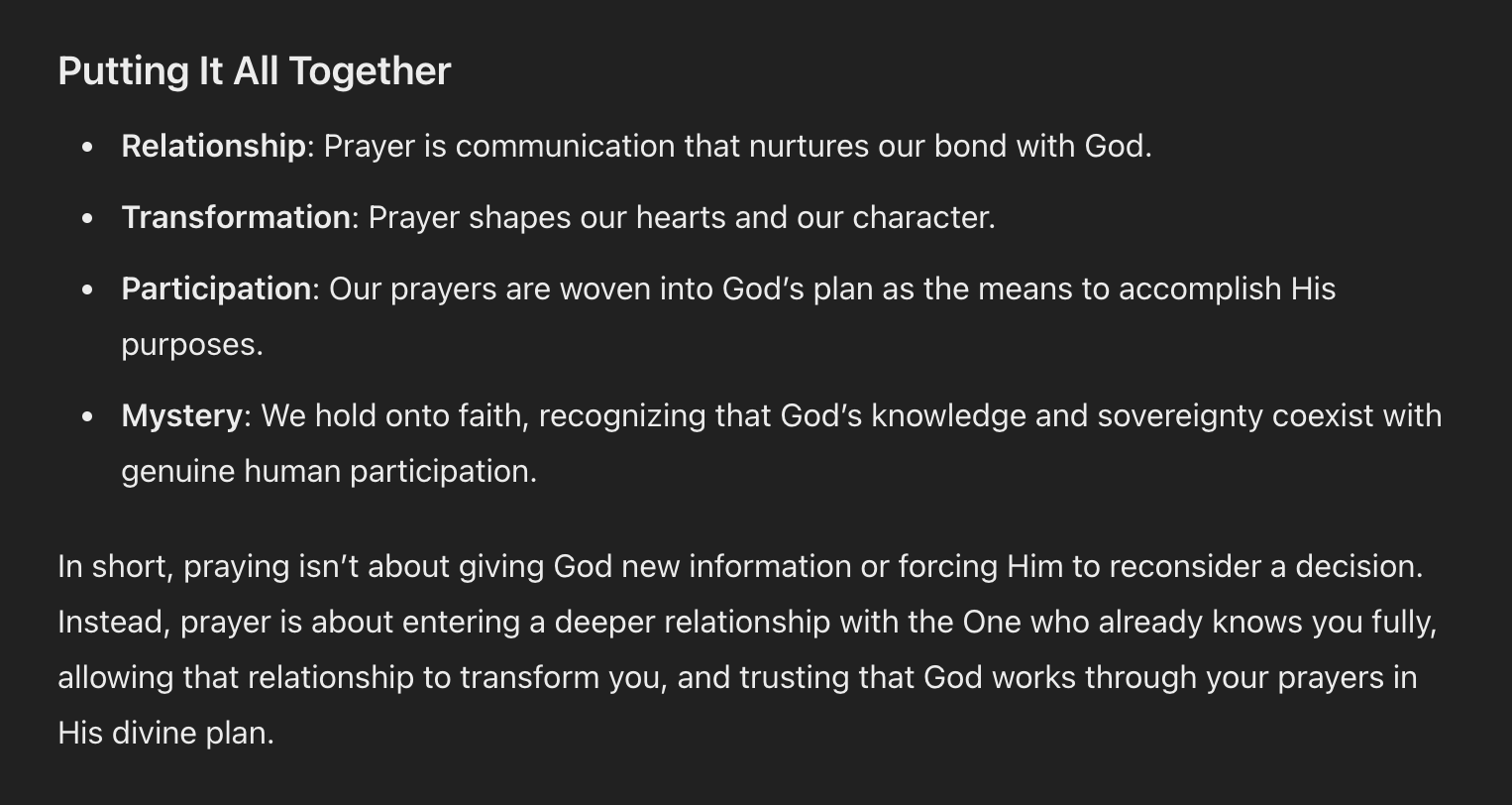Why Do We Pray if Everything is Planned by God? Insights from OpenAI o1
Image Credit: Naassom Azevedo | Splash
For centuries, the question of why prayer is necessary if God has already predetermined everything has sparked curiosity and contemplation across various faith traditions. This question is not confined to a particular group. Whether someone is a skeptic, an early seeker in their Christian journey, or even a seasoned believer who has been baptized for years, this dilemma often lingers in the mind and heart. Today, we bring this question to one of the most advanced AI chatbots, OpenAI’s o1 model (o3 model is not yet released), to see how it responds. Below, we summarize its detailed and thoughtful insights.
[Read More: Meta's AI Chatbots: Can You Really Chat with Jesus Christ?]
Understanding Prayer Beyond Requests
OpenAI’s o1 model emphasizes that prayer is not just about making requests or asking for favours from God. Instead, it is a profound tool for building and nurturing a relationship with God. Just as open communication strengthens bonds between friends or family members, prayer fosters intimacy and trust between a believer and the divine. Even if God is omniscient and knows every thought before it is expressed, the act of praying allows individuals to share their hearts and feel connected to their Creator.
Prayer Transforms the Pray-er
According to the o1’s analysis, prayer is not primarily about changing God or altering divine plans. Instead, it serves as a mechanism for transforming the person who prays. By engaging in prayer, individuals can:
Find clarity during difficult situations.
Develop patience, empathy, and faith.
Align their personal desires with God’s greater purpose.
This perspective aligns with theological teachings that suggest prayer reshapes one’s character and strengthens their spiritual foundation.
[Read More: ChatGPT Pro vs. Plus: Is OpenAI's $200 Plan Worth the Upgrade?]
Aligning with God’s Will
A key takeaway from OpenAI’s o1’s response is the idea that prayer aligns believers with God’s will. While God may have a comprehensive plan, o1 explains that prayer is often part of that plan. It serves as one of the means through which God’s purposes are fulfilled.
For example, praying for someone’s healing or guidance might be factored into how divine intervention unfolds. In this sense, prayer is not redundant; it is an integral component of God’s foreordained system.
[Read More: OpenAI’s Voice Engine: Revolutionizing Communication or Opening Pandora’s Box?]
Does Prayer Change God’s Mind?
A thought-provoking aspect of AI’s response revolves around the question of whether prayer can change God’s mind. OpenAI’s o1 clarifies that while it might appear as though God “relents” or “responds” in certain biblical narratives (e.g., Moses interceding for Israel), this language is more about human understanding than divine vacillation. God’s plans are eternal and incorporate every prayer offered, meaning that prayer is not about persuading God but participating in the unfolding of His will.
[Read More: AI Breakthrough: OpenAI’s o1 Model Poised to Surpass Human Intelligence]
Balancing Mystery and Faith
Ultimately, o1 points to the mystery surrounding the interplay of God’s sovereignty and human free will. It notes that believers are encouraged to trust that their prayers matter, even if they cannot fully comprehend how prayer interacts with divine omniscience and predestination. This balance of mystery and faith is a cornerstone of many Christian traditions.
[Read More: OpenAI's 12 Days of AI: Innovations from o1 Model to o3 Preview and Beyond]
Prayer as a Transformative Relationship
In conclusion, o1’s insights highlight the multifaceted role of prayer. Far from being merely a ritualistic act or a means to request intervention, prayer is a dynamic, transformative practice that builds intimacy with God, aligns individuals with divine purposes, and fosters personal growth. While the question of whether prayer can change God’s plan remains a profound mystery, the AI’s response underscores that prayer is meaningful, powerful, and integral to a believer’s life.
[Read More: OpenAI’s Latest o3 Model: What to Expect in Access and Pricing]
This thought-provoking exploration reminds us that questions of faith and practice are universal, transcending belief systems and stages of spiritual journey. Whether one is a skeptic, a new Christian, or a lifelong believer, engaging with such questions—and seeking thoughtful answers—can deepen understanding and strengthen faith.


